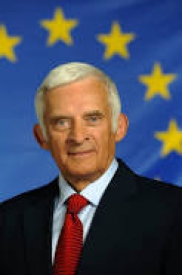EU Energy Committee Backs Regional Gas Solidarity
European Union (EU) member states facing an emergency gas shortage could call on other member states to supply them with gas under a draft law enshrining a “regional solidarity mechanism”.
A meeting of the EU parliamentary industry, research and energy, chaired by Jerzy Buzek, amended and approved a draft law October 13. It envisages a European Union comprising seven regions.
Public service obligations in one country would take priority over exports to its distressed neighbour(s).via “supply corridors” that would link EU countries.
Every country is supposed to have back-up in place – such as storage, fuel switching, demand shedding, LNG imports or other flexibility – in order to be able to manage for a certain period after the failure of gas supplies from its chief source of gas, under the EU N-1 rule. Security has been high on the EU's list of priorities following interruptions in Russian gas supplies across Ukraine. At the moment though there is an abundance of cheap gas, there is a lot of idle LNG import capacity, and interconnecting pipelines are being built – mostly in eastern Europe –with reverse flow capacity.
Jerzy Buzek, Committee chair
(Credit: EU parliament)
MEPs stressed that the “solidarity mechanism” is a last resort, and should include appropriate compensation to mitigate the consequences for any “market parties” involved.
The committee also approved a separate draft law that would require member states to notify the European Commission (EC) when they negotiate energy supply deals with third parties.
Details of energy supply contracts longer than one year, including the gas price, should be communicated to the relevant authorities and the EC, in order to provide an overview of the EU internal energy market and ensure its rules are respected, say MEPs. They add that if the EC “finds the terms of a gas supply contract” could harm the measures ensuring the uninterrupted gas flow in the Union, “it may consider launching further procedures, inter alia under Union competition law.”
EU states should involve the EC in in preparing and negotiating any supply contract for “the purchase, trade, sale, transit, storage or supply of energy in or to at least one member state,” including “the construction or operation of energy infrastructure” connected to at least one member state, say MEPs in a separate legislative resolution that was also approved October 13.
Without in any way restricting member states’ freedom to negotiate, the EC should have the role of advising national governments on how to ensure that a deal “complies with Union law and respects Energy Union objectives”, say MEPs.
This committee also approved a mandate for MEPs to start talks with the Council to agree on common legislative texts on solidarity measures and the monitoring of national contracts, respectively.
William Powell



